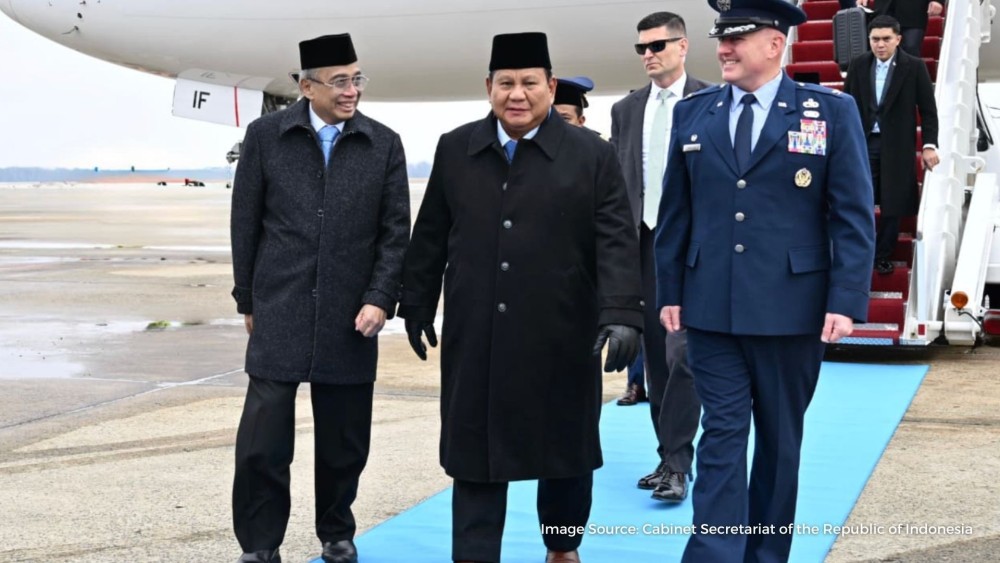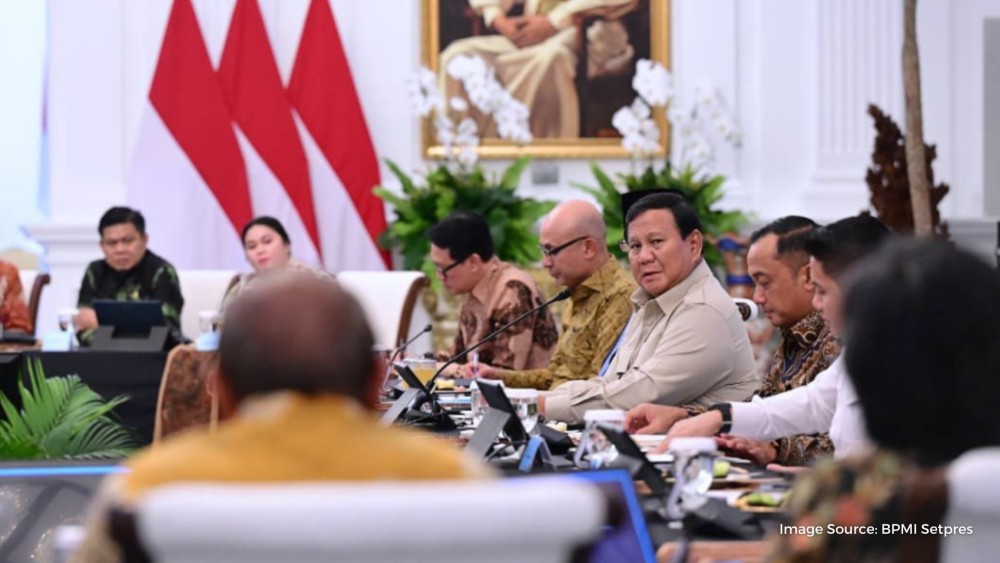Indonesia Pursues Strategic Engagement in Response to Trump Tariffs
09 Apr 2025

Indonesia is opting for diplomacy and economic concessions in response to the sweeping 32% tariffs imposed by U.S. President Donald Trump. The policy, which affects several Southeast Asian economies, sent financial markets reeling and triggered urgent action in Jakarta to stabilize the rupiah and protect its trade interests.
The Indonesian rupiah plunged to a record low of 16,970 per U.S. dollar on Wednesday, according to London Stock Exchange (LSEG) data, following earlier losses on Tuesday. Bank Indonesia responded by intervening in the spot market, domestic non-deliverable forwards, and bond markets.
“We will act boldly to maintain rupiah stability,” said Bank Indonesia Senior Deputy Governor Destry Damayanti, as quoted by Reuters.
She attributed the weakness in regional currencies to “President Trump’s decision to suddenly decide to increase tariffs on Chinese products by 104%,” while asserting that Indonesia’s domestic economy remained resilient.
The stock market also experienced significant volatility as trading resumed after the long Idul Fitri and Nyepi holidays. On April 8, the Jakarta Composite Index fell 9.2% shortly after the opening bell, triggering a 30-minute trading halt. The drop narrowed to 8.31% later in the morning.
Anticipating market turbulence, the Indonesia Stock Exchange revised its circuit breaker rules before the market reopened. The threshold for a first trading halt was widened from a 5% drop to 8%, while subsequent thresholds were adjusted upward.
“These measures were taken to manage market volatility and safeguard investors,” said IDX Corporate Secretary Kautsar Primadi Nurahmad, as quoted by The Jakarta Post.
At a multi-stakeholder meeting on Monday, President Prabowo Subianto directed his administration to take a negotiation-based approach. Coordinating Economic Affairs Minister Airlangga Hartarto stated in a press conference that “the President has given the instruction to [narrow the trade surplus by importing] more [US] products that we need, including wheat, cotton or even oil and gas products,” according to The Jakarta Post.
The move is part of a broader effort to reduce Indonesia’s USD 16.8 billion trade surplus with the U.S., which was its third-largest export destination in 2024.
Jakarta also announced a series of concessions ahead of scheduled trade negotiations with Washington. Finance Minister Sri Mulyani Indrawati said import duties on U.S. steel, mining products, and health equipment would be lowered to between 0% and 5% from current levels of 5% to 10%.
Taxes on electronics, including mobile phones and laptops from all countries, will also be reduced from 2.5% to 0.5%. She also noted that Indonesia sees potential to fill gaps in the U.S. supply chain left by other Asian exporters.
“There is room for Indonesia to replace Vietnam, Bangladesh, Thailand, and China as a source of some exports to the U.S.,” she told Reuters.
Deputy Industry Minister Faisol Riza confirmed that a high-ranking delegation, led by Airlangga and including Sri Mulyani and Foreign Minister Sugiono, would travel to Washington by April 17. Airlangga said the U.S. Trade Representative was “awaiting a concrete proposal from Indonesia,” as reported by The Jakarta Post.
The government is also considering easing local content rules, which have previously created trade friction, notably during a ban on the iPhone 16 that was only lifted after Apple pledged over USD 300 million in investments.
Airlangga also emphasized Indonesia’s commitment to coordination within the Association of Southeast Asian Nations (ASEAN), with an ASEAN meeting scheduled for April 10 to calibrate responses. “Synchronization between ASEAN countries is needed,” he said, noting that all member states were affected by the U.S. tariff policy.
As of Wednesday, Indonesia’s delegation was finalizing preparations for the upcoming negotiations. The government continues to monitor market conditions while Bank Indonesia maintains its intervention efforts.
“To ease market pressure we need strategic measures by the government to maintain the rupiah's stability, ensure economic growth remains above 5% and a strategic response to maintain Indonesia's trade surplus,” Oktavianus Audi, Vice President at Kiwoom Sekuritas, told Reuters.






